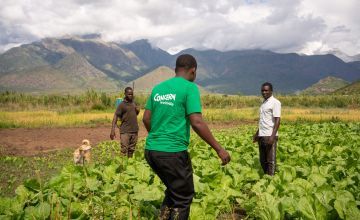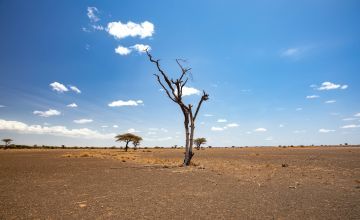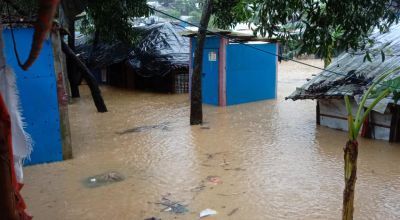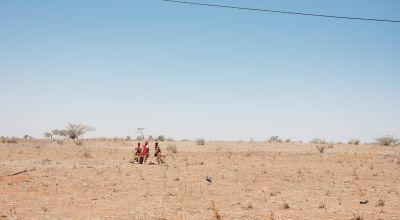
Read our 2024 annual report

Knowledge Hub
The UN climate talks or COP26 - also called the ‘Crisis COP’ this year owing to urgent global action needed to limit global warming to 1.5 °C - ended this weekend in Glasgow.
However, did the outcomes compare favourably to the kind of action and commitments required to meaningfully tackle the global climate crisis? Unfortunately, no, and there still remains a stark gap between rhetoric and action.
The last two weeks have seen a multitude of announcements, many of which are positive steps forward.
However, the scale of the problem vastly outweighs the scale and pace of efforts that nations, especially the wealthier ones, have agreed to take.
These nations will need to work harder to build trust in their ability to deliver. As Mary Robinson clearly put it earlier this week; leaders of the poorest countries are in crisis mode, but some of the leaders who could and should be doing most are not. Or as climate activist Vanessa Nakate said “we are drowning in promises”.
As a humanitarian non-governmental organisation, Concern was at COP26 to highlight the impact that climate change is already having on the lives of the poorest people.
The Climate Crisis – happening now, and impacting our collective future
Across all the countries that Concern works in, we are seeing how the mounting effects of climate change are putting millions of lives at risk.
Homes washed away by bigger and more frequent floods. People’s livelihoods eroded by recurrent droughts. People and countries driven into debt in trying to rebuild their lives.
In the world of the climate talks these impacts of the climate crisis are referred to as ‘loss and damage’, and has been an important issue for low-income countries in the negotiations.

Rich countries failing to step up
At COP26, low-income countries were calling for rich nations to deliver their commitment to $100bn a year in climate funding they had promised in 2009, and which was meant to be met last year in 2020.
They were also pushing to ensure the negotiations address their rising longer-term funding needs for adapting to climate impacts and mitigating emissions, as well as finance for the losses and damages already caused by climate impacts.
But wealthy countries have been blocking progress on all of these. Low-income country negotiators have denounced the gap between world leaders’ speeches and what happens behind closed doors in the negotiation rooms.
What happened on funding for vulnerable countries?
In the run up to the negotiations, Germany and Canada drew up a roadmap for the delivery of the $100bn on behalf of these countries, which made it clear that they’re unlikely to meet this commitment before 2023.
These climate finance commitments are still being drawn from already stretched Official Development Assistance (ODA) budgets, not additional to them.
Without this funding, the progress that resource-poor nations can make will be highly limited.
However, there were some welcome announcements that the gap in adaptation finance will be addressed, to better reach the balance within climate finance between mitigation and adaptation.
Five countries – Rwanda, Bangladesh, Fiji, Uganda and Jamaica – will also take part in a trial to ease the red tape and simplify the process to access financial support. This is a much needed start to making sure that countries can access the money they urgently need as quickly as possible.
However, big decisions on finance for loss and damage – the real litmus test – were put off until a later date.
With a commitment only to dialogue, rather than action, from wealthy countries, people in climate-vulnerable countries who need the support now are being let down.

Far from what is needed, but not without hope
The progress made at COP26 is without doubt worlds away from what is needed. But some progress was made.
There were more commitments to reduce emissions, even though these don’t go far enough.
We saw announcements of more money to help low-income countries deal with the impacts of climate change, though nowhere near enough compared to what is needed. We saw increased recognition of human rights and the gendered impacts of climate change. Though these were hard-fought for.
These small steps have been hard won in difficult political contexts, where budgets are increasingly constrained in a world still dealing with covid-19.
But small steps are not enough at this point in time. And when faced with the difficulties of people dealing with climate impacts now, political challenges pale by comparison.

What we can take from COP26 is that some of the most crucial issues for people already feeling the impacts of the climate crisis are now more firmly on the agenda.
At COP27 next year, loss and damage will be at the front and centre of discussions. Last week, Scotland’s First Minister Nicola Sturgeon announced the allocation of GBP1m for the world’s first loss and damage fund.
This, plus the tireless work of negotiators and activists from low-income countries, lays the foundations for progress.
At Concern, we plan to build on those foundations by continuing to work with some of the people most vulnerable to climate impacts, raise their voices and hold decision-makers to account.




